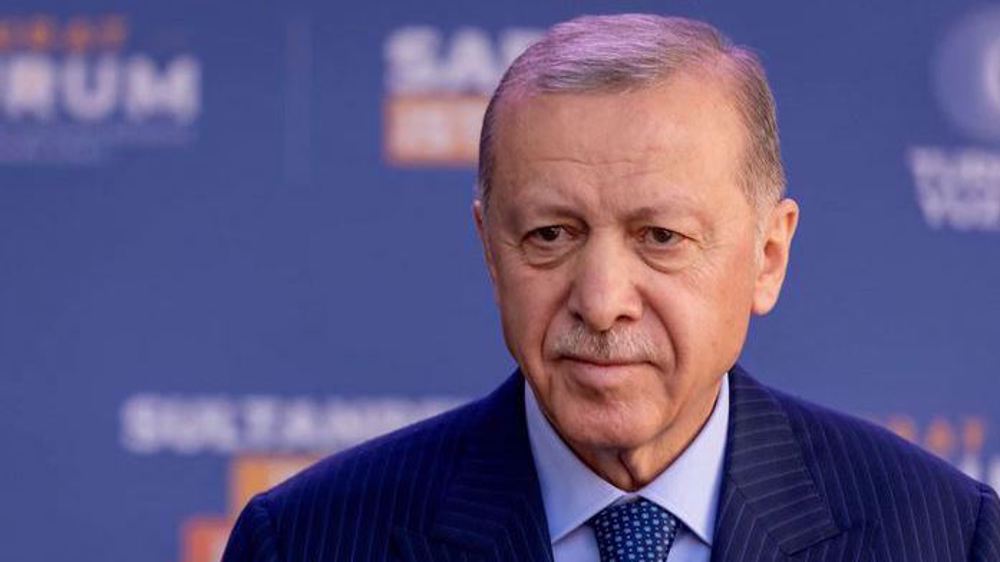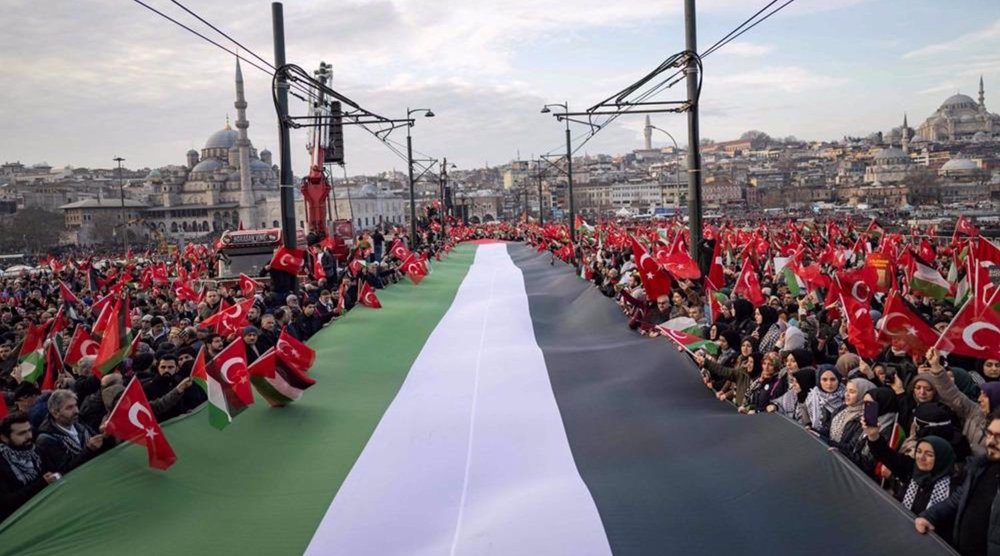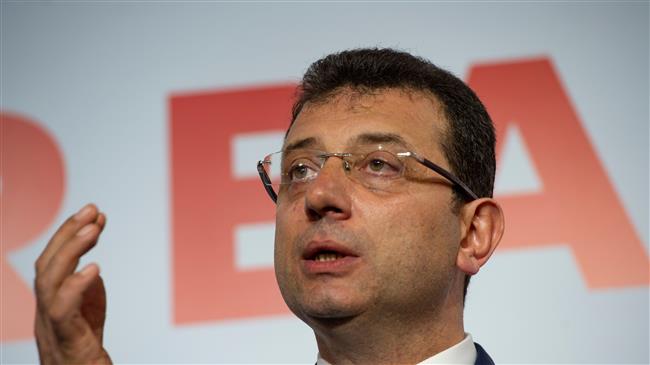Ruling AKP asks Turkey election board to settle row over Istanbul vote results
The outcome of mayoral elections in Turkey’s second-largest city of Istanbul remains in doubt as President Recep Tayyip Erdogan’s ruling party is challenging the initial results, which gave the main opposition party a slight lead in one of the economic hub’s tightest election races in decades.
Municipal elections were held across Turkey on Sunday. Erdogan’s alliance led by the ruling Justice and Development Party, known as AKP, succeeded in securing over 51 percent of the vote nationally, leading him to declare an overall victory.
The AKP, however, suffered a major upset as results showed it had lost not only the political center, Ankara, and the third-largest city of Izmir, but also probably Istanbul, which is Turkey’s commercial center and Erdogan’s home city.
Erdogan and his AKP had not lost a local election in Ankara or Istanbul in nearly two decades.
As of Monday afternoon, with over 99 percent of the ballots cast in Istanbul counted, the AKP’s candidate and former prime minister Binali Yildirim, had received 4.13 million votes, while Ekrem Imamoglu, the Republican People’s Party (CHP) candidate, had won 4.16 million.
The chairman of Turkey’s Supreme Election Board (YSK), Sadi Guven, said on Monday that Imamoglu was leading by nearly 28,000 votes with most ballots counted.
“So far a total of 31,102 ballot box results [in Istanbul] have been registered to the system, 84 ballot box results have not been concluded because of objections,” he said.
The CHP’s candidate claimed victory in the Istanbul elections and urged the AKP not to resort to unnecessary means to challenge the outcome.
Yildirim – who had initially said that he had won the race by around 4,000 votes -- admitted later that he was 25,000 votes behind Imamoglu.
“But there is an important detail here. The number of canceled votes is 319,500. This is important as this figure is 10 times more than the gap between us,” the AKP candidate said. “I will congratulate him if the election board YSK announces him as the winner but I must note that the counting process is still ongoing.”
Bayram Senocak, AKP's Istanbul provincial head, said that his party had “plenty of” evidence showing “irregularities” in the vote, which had an impact on the outcome.
“Some of the ballots for Binali Yildirim were wrongfully recorded for CHP’s candidate Imamoglu. There are serious irregularities that may change the election results and AK Party is ready to prove them all,” he said.
However, Sezgin Tanrikulu, a CHP lawmaker from Istanbul, said that although Imamoglu had won the race in Istanbul, the election board was now waiting for the objection period to end to declare the official winner.
“There have been complaints about certain ballot boxes. Legally, the party objecting should show a valid reason in doing so over each particular ballot box. Therefore, the number of boxes votes will be recounted in is limited,” he told Al Jazeera. “The government should respect the results.”
#Turkey’s AK party to ask YSK to resolve vote dispute https://t.co/dpC2A9LNJE pic.twitter.com/E3mCqNSktt
— ANADOLU AGENCY (ENG) (@anadoluagency) April 2, 2019
Still, the AKP announced plans to ask the Supreme Election Council to resolve the row over invalid votes both in Istanbul and Ankara.
Speaking at a press conference early Tuesday, AKP spokesman Omer Celik said that the appeal process is meant to remove irregularities in the election results.
“The [appeal] process is legitimate. Everyone should respect it,” he added, emphasizing that there are discrepancies between reports from polling centers and vote counts for Ankara and Istanbul.
Although the AKP has secured an overall victory over its rivals, the results of Sunday’s elections – which Erdogan had framed as a matter of “national survival” -- are widely seen as a major setback for the president, who first rose to power after serving as an Istanbul mayor, and a stinging blow to his 16-year-old rule.
Erdogan’s election losses appear to be partially rooted in the country’s economic downturn. Turkey’s currency, the lira, has been losing its value recently. National economy slipped into recession in the last three months of 2018 amid public discontent with rising inflation and unemployment rate.
The vote also marked the first ballot-box test for Erdogan since he was re-elected last year under a new system of government, which gives sweeping powers to the president.
Top commander names 4 'historic achievements' of Operation True Promise
VIDEO | Iranian attack and crisis of entity
UN chief: Israel’s war turned Gaza into 'humanitarian hellscape'
Meta's WhatsApp challenged for complicity in Israel’s Gaza genocide
Iran, Jordan underline need to stop Israel’s genocidal war on Gaza
Iran’s response to Israel will be ‘immediate, at maximum level’: FM
Gaza: No place for children
Voters begin casting ballots in weeks-long election in India














 This makes it easy to access the Press TV website
This makes it easy to access the Press TV website